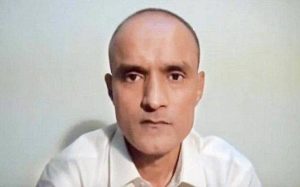Kulbhushan Jadhav Case:

Pakistan has urged India to appoint a lawyer to represent death row convict Kulbhushan Jadhav to implement the verdict of the International Court of Justice (ICJ).
About the Kulbhushan Jadhav Case:
- Kulbhushan Jadhavwas sentenced to death by a Pakistani military court on charges of espionage and terrorism in April 2017.
- India approached the ICJ against Pakistan for denial of consular access (Vienna Convention) to Jadhav and challenging the death sentence.
- ICJ ruled in July 2019 that Pakistan must undertake an “effective review and reconsideration” of the conviction and sentence of Jadhav, and also grant consular access to India without further delay.
- It had asked Pakistan to provide a proper forum for appeal against the sentence given to Jadhav by the military court.
Implications of ‘Effective Review and Reconsideration’ for India:
- Effective review and reconsideration is a phrase which is different from ‘review’ as one understands in a domestic course.
- It includes giving consular access and helping Jadav in preparing his defence.
- It means that Pakistan has to disclose the charges and also the evidence which it has been absolutely opaque about uptill now.
- Pakistan would also have to disclose the circumstances in which Jadhav’s confession was extracted by the military.
- It implies that Jadhav will have a right to defend whichever forum or court hears his case.
International Court of Justice:
- ICJ is a principal judicial organization of the United Nations (UN). It was established in 1945 by a UN Charter and began working in 1946 as the successor to the Permanent Court of International Justice.
- It settles legal disputes between member countries and gives advisory opinions to authorized UN Organs and Specialized Agencies.
- An Indian, Judge Dalveer Bhandari has been a member of the ICJ since April 2012.
- It is seated in the Peace Palace of Hague, Netherlands.




